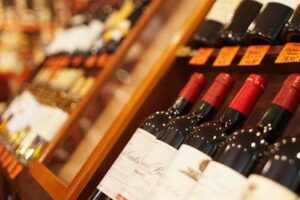
Nigeria Customs Proposes Unified 4% FOB Charge to Streamline Import Tariffs, expert reviews implication on wine and spirits trade
The Nigeria Customs Service (NCS) has proposed a new uniform benchmark duty of 4% Free On Board (FOB) on imported goods, a policy shift aimed at simplifying Nigeria’s import duty structure and enhancing trade facilitation. This initiative, which replaces certain levies such as the 1% CISS and 7% port collection fees, is expected to bring much-needed clarity and predictability to the import process.
The new policy is part of ongoing reforms by the Federal Government to digitize and modernize port operations, including the recent launch of the B’Odogwu Trade Portal, designed to streamline clearance and documentation processes for importers and exporters.
According to industry analyst and wine & spirits advisor Victor Ikem, who prepared a comprehensive policy brief on the issue, the 4% FOB policy presents both potential benefits and risks depending on its implementation framework.
“If the 4% replaces existing higher charges, it could significantly reduce import costs, especially for products like wine and spirits that have historically been heavily taxed,” said Ikem. “However, if it is applied in addition to current tariffs, it could further burden importers and distort market pricing.”
The report outlines two possible outcomes for importers:
-
Scenario A: 4% replaces current tariffs — leading to lower landed costs, improved market pricing, and increased formal sector participation.
-
Scenario B: 4% is an additional charge — pushing up operational costs and encouraging smuggling and informal market activity.
The policy’s full implications remain uncertain as it may be selectively applied under ECOWAS Common External Tariff (CET) classifications. Industry stakeholders are advised to seek clarification, review product HS codes, adjust pricing strategies, and prepare for either scenario.
Despite initial skepticism from maritime experts, the NCS’s move is being closely monitored by the business community for its long-term effects on trade volumes, regulatory compliance, and investor confidence.
Victor Ikem emphasized the need for continued dialogue between the government and the industry, particularly wine and spirits stakeholders, noting the absence of a unified trade association to represent importer interests.

